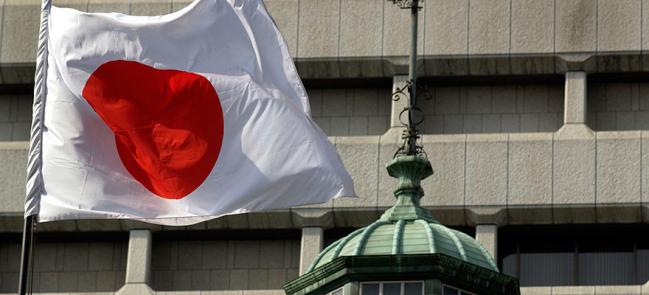By Vassil Nikolov
Frustrating CPI figures and a core measure falling back to zero are signs of a desperate need for monetary stimulus from the BOJ.
Financial markets kept selling off overnight alongside falling yen because of the speculators selling off the yen loans.
Financiers are calculating their holdings of bank shares and pressure over global share markets still persists. The stress in world's financial markets doesn't seem to harm most economies at all. Currency intervention by the BOJ could come in handy for financial markets because the real economy seems to be doing just fine. The yen has gained almost 10% since 29th of January after the adoption of negative interest rates. Unfortunately the change will be disadvantageous after the BOJ printed trillions of dollars’ worth of yen in hopes of weakening the currency to support the exports and revive growth. Japan, as a major economy, has the worst economic principles of all time.
The debt of Japan is almost twice as big as Greece has, but an even bigger problem is caused by the rapidly declining population. It is predicted that by the year 2060 it will decline by 1 million of inhabitants every year, which basically means we will see a decrease from 128 million in 2008 to 86 million in 2060. Without the government reorganizing its debt at some point, it will be really hard to survive unless a massive amount of the public debt is written off.
Haruhiko Kuroda [governor of BOJ] criticized investors' repulsive approach to persistent volatility and backed the negative interest rate agenda despite concerns over the effectiveness of such acts. The head of the BOJ also noted that bank profits were increasing over the years of ultra-easy monetary policy. He had shown signs of doubt over criticism that extreme stimulus policy is putting too much risk in destabilizing Japan's banking system by squeezing returns on lending. Bank earnings were on the rise due to the decline in corporate bankruptcies caused by the recovering economy. Kuroda also stated that bank lending was intensified.
The Japanese government ruled by Abe is considering a front-loaded supplemental budget to be implemented at the beginning of the new fiscal year. Frustrating CPI figures reported earlier today and a core measure falling back to zero are signs of a desperate need for monetary stimulus from the BOJ.
Japanese CPI continued to show declining tendency as it hit 0% indicating that the Bank of Japan could set negative interest rates to deepen their massive monetary stimulus program. Tokyo CPI Ex Fresh Food was at the zero line last year, just as expected, however it sank even further below the 0.1% rate seen in December.
Interest on bank deposits are not expected to reach below zero, which basically means that depositors pay interest, even if Japan's long-term interest rates will be negative. The same principle applies to loans and corporate bonds, a team of experts on financial law said on Friday. The committee's decisions are not legally binding. Keeping in mind that the panel's lawyers and academics are leading experts in relevant regulations, this could become compulsory. Professor Seiichi Yamada and Kunihiko Morishita are heads of this committee, with its secretariat at the BOJ.
Long-term interest rates in the market hit 0% and went even further than that in January after the central bank decided to ratify a negative interest rate policy targeting some funds deposited by financial institutions. The committee had stated that banks are not allowed to demand interest from their customers, on the other hand financial institutions could compensate this by charging fees.

A previous forecast of Japan's GDP 0.8% growth was down 0.2% according to the Organization for Economic Cooperation and Development statement on Thursday. The change in the forecast was influenced by the yen’s recent rise and downturn in its trading partners' economy. With declining crude oil prices and unstable financial markets the global economy is expected to remain stagnant according to the OECD.
